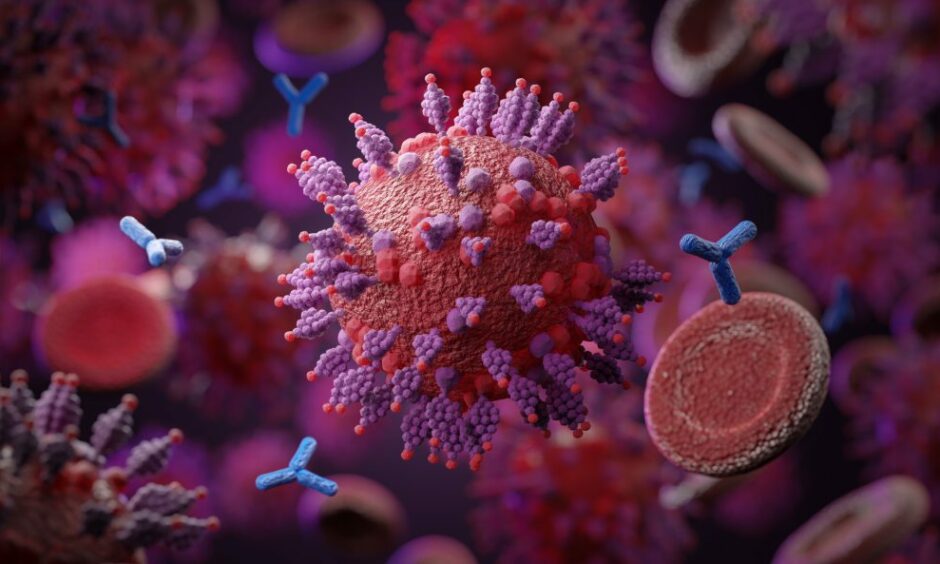Two new subvariants of Omicron have triggered a surge of infections across Scotland.
The BA.4 and BA.5 offshoots appear to be the most transmissible variants of coronavirus we’ve seen so far.
Hospital admissions are increasing and new statistics reveal one in 17 people in Scotland are now believed to have tested positive.
ONS stats, released on Friday, estimate that around 312,800 people – about 5.94% of the population – contracted the virus in the last week of June.
What are these new variants?
The UK Health Security Agency has revealed that the Omicron BA.4 and BA.5 variants are now becoming dominant in the UK driving a rise in infections.
Both share identical mutations in their spike proteins although there are differences between them in other parts of the virus.
They were first detected in South Africa at the start of the year although it is not clear where they originated.
Jillian Evans, head of health intelligence at NHS Grampian, said they share similarities with the BA.2 variant although BA.5 is growing at a 35% faster rate.
What if I’ve already had Covid?
The two variants appear to be the most infectious yet and are more likely to evade immunity from vaccines and previous infections.
“Maybe people are thinking the virus is mild now but we’ve got a new variant and there are some very worrying signs about that new variant,” Jillian says.
“People are catching it again and again. The current rate of reinfections is 18% – which I think is probably underestimated.
“There is some cross-immunity from previous variants but not a lot so you can still catch it even if you’ve had it before.”
Why is it a variant of concern?
Jillian said hospital admissions are beginning to rise again and have gone up around 26% a week in Scotland alone.
Earlier this week there were 108 patients in Grampian hospitals with coronavirus – an increase of around 15 people per day over the past week.
“Although the symptoms are quite similar, it could be evolving to target the lung cells so it makes it a bit closer to the more severe Alpha and Delta variants. I think that’s a big worry,” Jillian said.
“It’s under review; it’s a very uncertain situation at the moment.”
Covid new variant: What are the symptoms
The symptoms appear to be similar to those of the BA.2 variant.
Those who have reported their symptoms to the national Zoe Health Study have highlighted problems with a sore throat, runny nose and a headache.
Fatigue and muscle pains are also a sign. But patients are less likely to lose their sense of taste and smell or experience shortness of breath.
Guidelines are in place to help you stop the spread of Covid if you catch the virus.
Read more health news…
Track the spread of coronavirus with these charts
Covid spikes sees A&E services busier than ever




Conversation